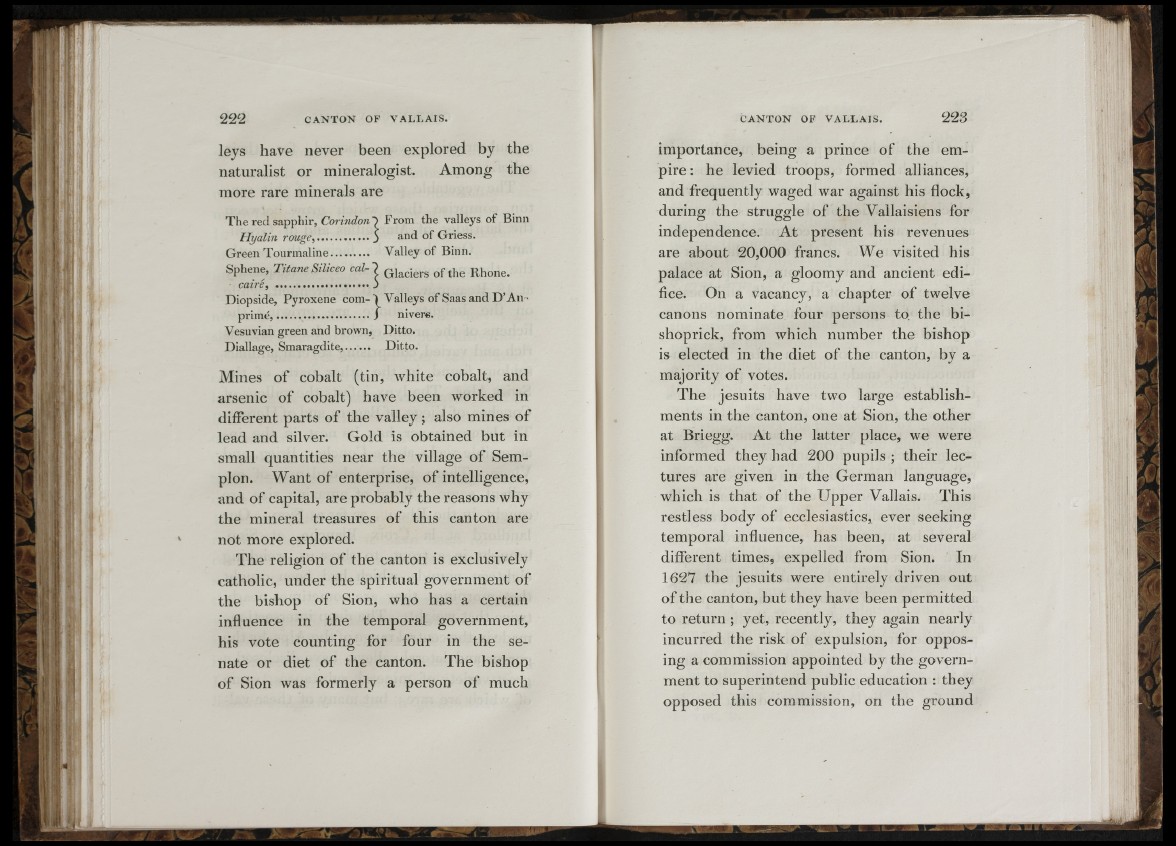
ilk
Isdi
J'”
( f;i /■ ;l
Li m
*" Í—— j *
ïM
: ^mSJ"a
I “I14
J 'iil
f I — S
■L3 n3«1!- ':
i 3^
;■ ”s «
i'■
' im '
;H -
fd ■
flE'
i i
}f
:iB!l 'M
leys have never been explored by the
naturalist or mineralogist. Among the
more rare minerals are
The red sappliir, Corindonl From the valleys of Binn
Hyaliti rouge,...................5 Griess.
Green Tourmaline.............. Valley of Binn.
Sphene, Titane SiUceo calD Gi^^iers of the Rhone.
CCi Î V€ y 3
Diopside, Pyroxene com- Y Valleys of Saas and D’An-
prime, ...............................j niver«.
Vesuvian green and brown, Ditto.
Diallage, Smaragdite, Ditto.
Mines of cobalt (tin, white cobalt, and
arsenic of cobalt) have been worked in
different parts of the valley ; also mines of
lead and silver. Gold is obtained but in
small quantities near the village of Semplon.
Want of enterprise, of intelligence,
and of capital, are probably the reasons why
the mineral treasures of this canton are
not more explored.
The religion of the canton is exclusively
catholic, under the spiritual government of
the bishop of Sion, who has a certain
influence in the temporal government,
his vote counting for four in the senate
or diet of the canton. The bishop
of Sion was formerly a person of much
importance, being a prince of the empire
: he levied troops, formed alliances,
and frequently waged war against his flock,
during the struggle of the Vallaisiens for
independence. At present his revenues
are about 20,000 francs. We visited his
palace at Sion, a gloomy and ancient edifice.
On a vacancy, a chapter of twelve
canons nominate four persons to. the bi-
shoprick, from which number the bishop
is elected in the diet of the canton, by a
majority of votes.
The jesuits have two large establishments
in the canton, one at Sion, the other
at Briegg. At the latter place, we were
informed they had 200 pupils ; their lectures
are given in the German language,
which is that of the Upper Valíais. This
restless body of ecclesiastics, ever seeking
temporal influence, has been, at several
different times, expelled from Sion. In
1627 the jesuits were entirely driven out
of the canton, but they have been permitted
to return ; yet, recently, they again nearly
incurred the risk of expulsion, for opposing
a commission appointed by the government
to superintend public education ; they
opposed this commission, on the ground